Related Research Articles

Brigham Young was an American religious leader and politician. He was the second president of The Church of Jesus Christ of Latter-day Saints from 1847 until his death in 1877. During his time as church president, Young led his followers, the Mormon pioneers, west from Nauvoo, Illinois to the Salt Lake Valley. He founded Salt Lake City and served as the first governor of the Utah Territory. Young also worked to establish the learning institutions which would later become the University of Utah and Brigham Young University. A polygamist, Young had 55 wives and 56 children. He instituted a ban prohibiting conferring the priesthood on men of black African descent, and led the church in the Utah War against the United States.
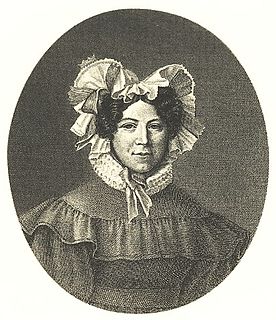
Johanna Schopenhauer was mother of the famous German philosopher Arthur Schopenhauer. She was the first German woman to publish books without a pseudonym, an influential literary salon host, and in the 1820s a popular author in Germany.

Eliza Roxcy Snow was one of the most celebrated Latter Day Saint women of the nineteenth century. A renowned poet, she chronicled history, celebrated nature and relationships, and expounded scripture and doctrine. Snow was married to Joseph Smith as a plural wife and was openly a plural wife of Brigham Young after Smith's death. Snow was the second general president of the Relief Society of The Church of Jesus Christ of Latter-day Saints, which she reestablished in Utah Territory in 1866. She was also the sister of Lorenzo Snow, the church's fifth president.

Orson Pratt Sr. was an American mathematician and religious leader who was an original member of the Quorum of the Twelve Apostles of the Church of Christ. He became a member of the Quorum of the Twelve of The Church of Jesus Christ of Latter-day Saints and was a leading Mormon theologian and writer until his death.
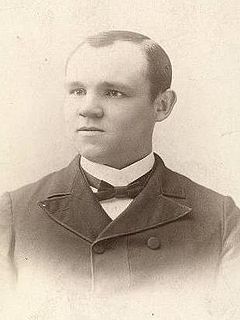
James Edward Talmage was an English chemist, geologist, and religious leader who served as a member of the Quorum of the Twelve Apostles of The Church of Jesus Christ of Latter-day Saints from 1911 until his death.
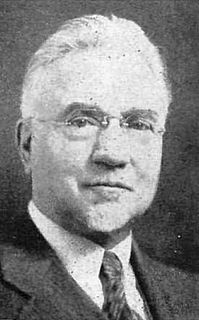
John Andreas Widtsoe was a member of the Quorum of the Twelve Apostles of The Church of Jesus Christ of Latter-day Saints from 1921 until his death. Widtsoe was also a noted author, scientist, and academic.

Daya Mata, born Rachel Faye Wright, was the president and sanghamata of the only organization that Paramahansa Yogananda created to disseminate his teachings, Self-Realization Fellowship (SRF) in Los Angeles, California / Yogoda Satsanga Society of India (YSS), for over 55 years.
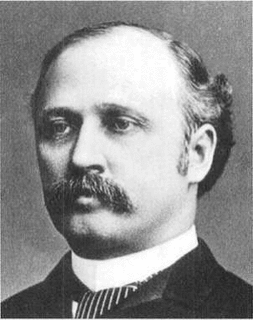
John Willard Young was a leader in The Church of Jesus Christ of Latter-day Saints. He is one of the few individuals to have been an apostle of the LDS Church and a member of the First Presidency without ever having been a member of the Quorum of the Twelve Apostles.

Spiritual wifery is a term first used in America by the Immortalists in and near the Blackstone Valley of Rhode Island and Massachusetts in the 1740s. The term describes the idea that certain people are divinely destined to meet and share their love after a receiving a spiritual confirmation, and regardless of previous civil marital bonds. Its history in Europe among various Christian primitivistic movements has been well documented. The followers of Jacob Cochran as early as 1818 used "spiritual wifery" to describe their religious doctrine of free love. Often confused with polygamy, spiritual wifery among the Cochranites was the practice in which communal mates were temporarily assigned and reassigned, either by personal preference or religious authority.

Karl Gottfried Maeser was a prominent Utah educator and a member of The Church of Jesus Christ of Latter-day Saints. He served 16 years as principal of Brigham Young Academy. Although he was not the first principal of the Academy, he is considered its founder. The Academy later became Brigham Young University (BYU) in 1903.

William Taylor Adams, pseudonym Oliver Optic, was an academic, author, and a member of the Massachusetts House of Representatives.

Dr. Orison Swett Marden (1848–1924) was an American inspirational author who wrote about achieving success in life and founded SUCCESS magazine in 1897. His writings discuss common-sense principles and virtues that make for a well-rounded, successful life. Many of his ideas are based on New Thought philosophy.
Lowell Dale Morgan, generally cited as Dale Morgan or Dale L. Morgan, was an American historian, accomplished researcher, biographer, editor, and critic. He specialized in material on Utah history, Mormon history, the American fur trade, and overland trails. His work is known both for its comprehensive research and accuracy and for the fluid imagery of his prose.

Edward Wheelock Tullidge was a literary critic, newspaper editor, playwright, and historian of the Utah Territory. During his life he was a member and leader in several different denominations of the Latter Day Saint Movement, including the Church of Jesus Christ of Latter-day Saints, the New Movement (Godbeite) movement, and the Reorganized Church of Jesus Christ of Latter Day Saints. He played a significant role in the creation of the Salt Lake Tribune.
The Republic was a work written by Zeno of Citium, the founder of Stoic philosophy at the beginning of the 3rd century BC. Although it has not survived, it was his most famous work, and various quotes and paraphrases were preserved by later writers. The purpose of the work was to outline the ideal society based on Stoic principles, where virtuous men and women would live a life of simple asceticism in an equal society.
Fortunes for All is the final work by Vash Young, a celebrated American author of four self-help books popular during the Great Depression. Written and first published in 1959, long after his earlier books were out of print, Fortunes for All encapsulates and expands on his earlier books with all the benefit of long hindsight. In his book Vash sets out the philosophy and methods he used to attain his own success and sets them in the context of his personal history and of the social and economic environment of the times.
Also see: The ships Anne and Little James
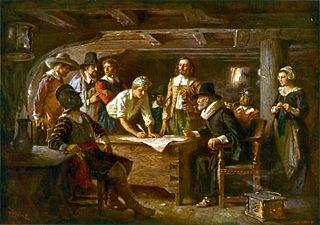
The Mayflower Compact was an iconic document in the history of America, written and signed aboard the Mayflower on November 11, 1620 while anchored in Provincetown Harbor in Massachusetts. The Compact was originally drafted as an instrument to maintain unity and discipline in Plymouth Colony, but it has become one of the most historic documents in American history. It was published in London in Mourt's Relation in 1622, and the authors had added a preamble to clarify its meaning: "it was thought good there should be an association and agreement, that we should combine together in one body, and to submit to such government and governors as we should by common consent agree to make and choose."
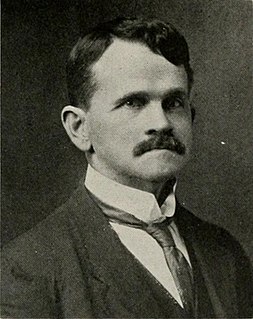
William Henry Chamberlin Jr. was an American Mormon philosopher, theologian, and educator. His teachings and writings worked to reconcile Mormonism with the theory of evolution. He taught philosophy and ancient languages as well as science and math at several Latter-day Saints (LDS) institutions including Brigham Young University in the early 20th century. He was one of four educators at Brigham Young University whose teaching of evolution and attempts to reconcile it with Mormon thought, although strongly popular with students, generated controversy among university officials and the LDS community. Chamberlin has been called "Mormonism's first professionally trained philosopher and theologian."
References
- ↑ "Vash Young" . Retrieved July 4, 2021.
- 1 2 Young, Vash. Fortunes for All . Dandi Books, Epsom, England. ISBN 978-1-906411-00-8
- ↑ Carnegie, Dale - How to Win Friends and Influence People pg 49-50
- ↑ Hicks, Granville - The Mystery of the Best Seller, The English Journal, Vol. 23, No. 8 (Oct., 1934), pp. 621-629